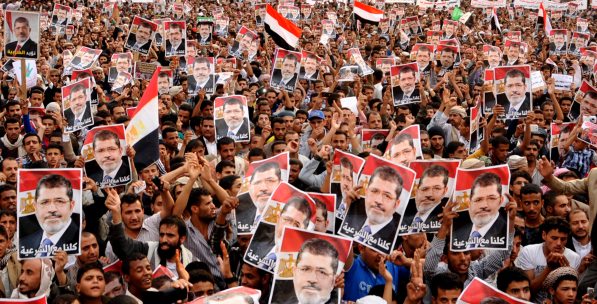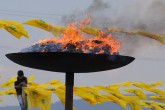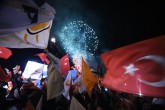In an analysis called “No one wins in Egypt” in the immediate aftermath of the Egyptian coup, I argued that there will not be any winners of the coup in Egypt.
The coup, I projected, would make every actor in the region lose dearly in the medium and long term. While we are approaching the one year anniversary of the military coup, it is becoming increasingly obvious those actors who tried to be on the side of either the military or the winner of the conflict lost in terms of money, influence, credibility and national interest.
Even the U.S., who cautiously did not even call the coup a coup, is having troubles in Egypt. The U.S., which emphasizes stability in Egypt as a matter of national interest, lost its leverage in Egypt and credibility in the Middle East. The frequent phone conversations between Field Marshal Abdel Fattah al-Sisi and Secretary of Defense Chuck Hagel did not do any good for the U.S. A few months ago, Sisi made an important trip to Russia reminiscent of Gamal Abdel Nasser’s rapprochement with the Soviet Union. It is not only the U.S. national interest at stake. Other actors supporting the coup also lost, losing in terms of cash and credibility in Egypt.
In this complicated situation, Sisi, who resigned last week from his military post in order to run for the presidency in an election this summer, is being named the winner of the military coup last year. It is commonly recognized that he will be the winner of the election and become the president of Egypt.
He already launched a charm offensive in Cairo, hanging out on the streets that a few months earlier witnessed one of the most horrendous massacres of recent years under his command. But is he the winner?
In the next few months until the elections, Egyptians will probably see plenty scenes of Sisi trying to seem charming, patriotic, selfless and modest. The cult of personality that he engineered on the Egyptian streets will make his face the most recognizable and most frequently seen image of Egypt. In the meantime, he will have crony capitalists and strategists that will design his strategy of survival and loyalists in military whose main goal will be to keep him in power. In the political sphere, Sisi can keep his power but his honeymoon of critic-free and secure political career will not last that long.
Soon, Sisi will start facing the realities of political life. He climbed the steps of power so far not through astute political and organizational skills. Sisi became the strongest man in a country like Egypt by overthrowing a democratically elected government, by using force against the demonstrators, by threatening dissent, by criminalizing Islamists and by detaining journalists. He is in this sense an analog dictator in a digital age. What we are seeing at this moment is another popular dictator. In most instances, these leaders in a short period of time alienate large parts of society and eventually make people regret supporting him. After assuming presidency, he will have to deal with possible opposition to his power from the ranks of the military. He has to keep the loyalty of the generals, who could overthrow him in the same way that Sisi overthrew Mohamed Morsi.
There will be challenging moments that will make even Sisi to lose sleep. In his address to announce his candidacy, he stated that he is aware of the problems the country faces. It is, however, highly dubious if he can resolve any of these problems as president.
The presidency will come with rights (which he already has) as well as responsibilities. He will be responsible for fixing the economy of the country, providing healthcare, creating jobs and reducing the poverty. The Gulf cannot keep pumping dollars into the economy and he cannot keep blaming the Muslim Brotherhood for all economic ills. He will soon learn that the economic problems of a country cannot be solved through military means. He cannot arrest or shoot everybody asking for jobs or breads. He will also understand that societal polarization that he himself cre



